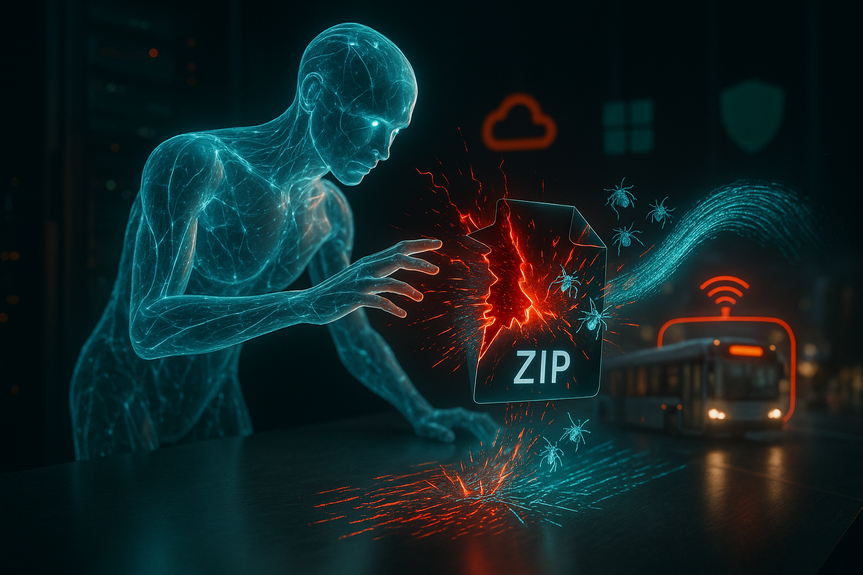college AI training with Google gives students hands-on tools and certificates to boost job readiness.
Coe College has joined Google’s AI for Education Accelerator to give students no-cost access to Gemini, NotebookLM, and job-ready certificates. This college AI training with Google focuses on hands-on practice, ethics, and guided learning so students build real projects, show proof of skill, and compete for high-paying roles right after graduation.
Coe College in Cedar Rapids is moving fast to make artificial intelligence a core skill for all students. Through a new partnership with Google’s AI for Education Accelerator, the college will provide modern tools, new courses, and certificates that speak to hiring managers. Faculty are already experimenting with AI in class and research. Two new classes, “AI in the Business World” and “K-12 Teacher Training for AI,” will open in the spring. The message is simple: learn to use AI responsibly, think clearly, and ship work that employers value.
Why AI skills matter now
AI is now in email, search, spreadsheets, docs, and code editors. Employers expect graduates to use it well. That means clear prompts, careful data use, and the ability to check AI output. It also means judgment. AI can make mistakes. Students need to know when to trust the model and when to dig deeper.
At Coe College, leaders say the goal is practical skill with intention. Use AI to save time, to analyze information, and to write better drafts. But also learn its limits. Learn how bias can show up. Learn how to protect privacy. These habits turn a new tool into a career edge.
How the Google partnership works
Coe College is one of more than 100 U.S. institutions in Google’s AI for Education Accelerator. The program gives the college access to Gemini and NotebookLM at no cost, plus industry-recognized certificate paths tied to real job roles. Students can use these tools in class, in research, and in personal projects.
What is the AI for Education Accelerator?
It is a Google initiative that supports colleges with:
AI tools like Gemini for writing, analysis, and code
NotebookLM for organized research and study
Certificate programs aligned to in-demand roles
Best practices for safe and responsible use
For students, this lowers barriers. You do not need to buy software. You can learn with the same tools used at tech companies and startups.
Tools you can use on day one
Gemini helps with drafting, summarizing, brainstorming, and coding ideas. NotebookLM helps you collect sources, ask questions about them, and keep your research structured. The program also highlights a guided learning mode in Gemini Pro. This mode acts like a learning companion. It asks questions, nudges you to think, and pushes you to explain your steps. It tries to help you find the answer, not just give it. This design supports critical thinking and reduces the risk that you rely on AI without understanding.
Certificates that employers recognize
Certificates give a clear signal of skill. When paired with class projects, they can bridge the gap between “I studied this” and “I can do this.” Students can pursue certificates in areas like data analysis, IT support, project management, or AI fundamentals. These micro-credentials add proof to your resume and LinkedIn profile. They also guide your learning path, so you do not get lost in random tutorials.
How college AI training with Google turns students into job candidates
The partnership shapes what students learn and how they show it. Coe’s new courses are built for action, not just theory. Faculty across subjects are weaving AI into assignments. This means a history student, a biology major, and a marketing minor can each use AI in ways that fit their field. The idea is not to replace thinking. It is to scale it.
Inside “AI in the Business World”
This course helps students use AI to improve common business tasks.
Prompting for better drafts, briefs, and emails
Summarizing reports and meetings
Using AI to spot patterns in sales, survey, or budget data
Building simple automations to cut manual work
Creating slides and visuals faster, with clear checks for accuracy
Practicing ethical use and understanding what data should never be shared
Expect hands-on projects like:
Design a simple market analysis with AI support and human checks
Create a sales dashboard using AI to draft formulas and explanations
Write a product launch plan and use AI to stress-test the risks
By the end, students can talk about business outcomes, not just tools. They can say, “I increased response time by 40% using AI draft templates” or “I cut report prep from five hours to one with AI and a QA checklist.” That is the language hiring managers understand.
Inside “K-12 Teacher Training for AI”
Future teachers learn how to use AI to plan lessons, personalize practice, and support student writing. They also study how to teach AI literacy to kids so they develop strong judgment.
Draft lesson plans and rubrics with AI assistance
Generate practice questions mapped to standards, then vet them
Use AI to adapt reading passages for different levels
Design activities that promote reasoning over copy-paste answers
Discuss policy, privacy, and equity in school settings
Teachers who can introduce AI with care will be in demand. They help schools move forward while protecting learning goals and student data.
Guided learning builds real understanding
The guided learning mode in Gemini Pro matters because it builds the habit of explanation. The tool asks you to show your steps. It pushes you to try again when the logic is weak. This reduces “AI shortcut” behavior and improves outcomes. Students learn to:
Break a big problem into smaller steps
Check sources and spot gaps
Explain why an answer is correct, not just repeat it
These habits carry into interviews, internships, and first jobs.
From classroom to job offer: concrete paths
Many jobs now ask for AI literacy. You do not need to be a machine learning engineer to benefit. With practice and proof, you can stand out in roles like:
Marketing coordinator: Use AI to draft copy, test variations, and analyze campaign performance
Data analyst: Use AI to help clean data, generate charts, and write clear insights
Operations specialist: Build AI-assisted checklists, SOPs, and reports to speed up workflows
Project coordinator: Generate timelines, risk logs, and stakeholder updates with AI, then refine them
HR assistant: Draft job posts, screen questions, and onboarding materials with clear review steps
Teacher or EdTech aide: Create lesson materials and formative checks while guarding student privacy
IT support: Use AI to draft troubleshooting guides and knowledge base articles
If you plan ahead, you can leave school with:
Two or more finished projects in a portfolio
A certificate that matches your target job
Short write-ups that show your process, not just final outputs
References from instructors who saw you apply AI responsibly
Turn your coursework into a portfolio
Employers hire proof. Build it as you learn.
Use NotebookLM to organize research and show how you synthesized sources
Save your best prompts and note what made them effective
Keep a “decision log” explaining how you checked AI output and fixed errors
Publish short case studies: the problem, the steps, the result, the lesson
Link your Google certificates on your resume and profile
In interviews, walk through a project. Show where AI helped and where your judgment mattered most. This shows maturity and reduces the fear that you will trust AI blindly.
Responsible AI is part of the grade
Successful professionals do not just move fast. They move wisely. Coe’s approach highlights trade-offs and guardrails.
Bias and fairness: know how bias can enter training data and outputs
Privacy: never paste personal or confidential data into public tools
Attribution: credit sources and follow copyright rules
Academic integrity: show your own thinking and document AI assistance
Verification: cross-check facts, cite sources, and run reason checks
These habits prevent misuse. They also build trust with managers and clients.
Make the most of this opportunity
Students do not need to wait to get value. Start now with simple steps.
Set a clear goal: pick one job family and align your projects to it
Pick a certificate path that matches that goal
Build two projects that solve real problems in your field
Use guided learning to practice step-by-step reasoning
Document your process so others can follow it
Ask for feedback from faculty and peers; improve your drafts
Join a campus challenge or hackathon to work in teams
Practice “explain your work” interviews with career services
With steady practice, your skills stack up quickly. Small wins lead to bigger wins.
What this means for colleges and employers
More than 100 colleges are partnering with Google on AI readiness. This scale matters. It means employers will see more graduates who can use AI tools and talk about outcomes. It also sets new norms in classrooms: clear rules for AI support, better prompts, stronger verification, and honest reflection about mistakes.
For employers, this creates a wider pool of job-ready candidates. You can task a new hire with research, drafting, data analysis, or documentation and expect them to use AI to speed up work while keeping quality high. You can also expect them to raise privacy and bias concerns early, which reduces risk.
For colleges, this partnership provides tools without extra student cost. It supports faculty who want to design assignments that encourage reasoning. It also brings industry signals—like certificates—that help students move into work faster.
A practical path to high-paying roles
AI is not a magic wand. It is a power tool. Students who learn to ask better questions, verify results, and present clear outcomes will stand out. Coe College’s move shows a simple model: give students strong tools, teach them how to use them with care, and push them to prove their skills through real work. When students graduate with projects, certificates, and a habit of thoughtful checking, they send a message to employers: I can deliver.
If you are choosing classes or planning a career shift, look for programs that blend hands-on tools, guided learning, and ethics. Build a portfolio that shows your path from idea to impact. Seek feedback. Keep your process transparent. These steps, when paired with college AI training with Google, can turn a degree into a job offer.
(Source: https://www.kcrg.com/2025/11/06/coe-college-offer-ai-tools-training-students-through-google-partnership/)
For more news: Click Here
FAQ
Q: What is the Google partnership that Coe College joined?
A: Coe College joined Google’s AI for Education Accelerator, which gives the college no-cost access to tools like Gemini and NotebookLM and offers industry-recognized certificate paths. This college AI training with Google aims to prepare students for the modern workforce by building practical skills and project proof.
Q: What AI tools will students use through the program?
A: Students will use Gemini for drafting, summarizing, brainstorming, and coding and NotebookLM for organized research and source Q&A, and the program includes industry-aligned certificate paths. The partnership also provides a guided learning mode in Gemini Pro that acts as a learning companion to support critical thinking.
Q: Which new courses will Coe College offer in the spring?
A: Coe College will offer two new spring courses: “AI in the Business World” and “K-12 Teacher Training for AI”. The first focuses on using AI for common business tasks and projects, while the second trains future teachers to plan lessons, personalize practice, and teach AI literacy responsibly.
Q: How does Gemini Pro’s guided learning mode support student learning?
A: Gemini Pro’s guided learning mode functions as a learning companion that asks questions, nudges students to explain steps, and helps them find answers rather than simply providing them. Google developed the mode with input from students, instructors, and researchers to support critical thinking and deeper understanding.
Q: How will certificates from this program help graduates in the job market?
A: The program’s certificates are industry-aligned and designed to signal specific, job-ready skills to hiring managers, especially when paired with class projects or a portfolio. Students can link these certificates on resumes and use completed projects to demonstrate practical outcomes to employers.
Q: How does Coe College address ethics, privacy, and academic integrity in its AI training?
A: Coe College emphasizes responsible AI use by teaching students about bias and fairness, privacy protections, attribution and copyright, and academic integrity. Faculty build assignments with guardrails and verification steps so students learn to check AI output and document their own reasoning.
Q: Can students from non-technical majors benefit from the Google tools and courses?
A: Yes; faculty across disciplines are integrating AI into coursework so students in fields like history, biology, and marketing can apply tools to their subject areas. The program focuses on practical tasks – research, drafting, and analysis – that are relevant across majors and help students build portfolios for job applications.
Q: What practical steps should students take to turn this college AI training with Google into job offers?
A: To convert this college AI training with Google into job offers, students should pick a target job family and certificate path, build two or more real projects tied to that role, and document their process and decision logs. They should use guided learning, save effective prompts, seek faculty feedback, join campus challenges or hackathons, and present projects and certificates in interviews.







